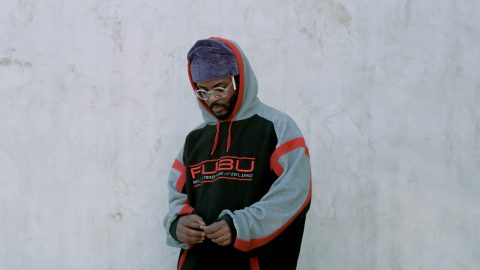
Eurovision bosses have defended the recent decision to disqualify Joost Klein from the 2024 final.
The 26-year-old singer was selected to represent the Netherlands with his song ‘Europapa’ for this year’s edition of the song contest, but was withdrawn from the competition just hours before Saturday’s final (May 11).
The incident marked the first time in the competition’s 68-year history that an act had been disqualified after reaching the Grand Final. Shortly before his disqualification, he was named as one of the favourites to win the 2024 edition.
Limited details have been shared about the incident that led to him being kicked out of the contest, but at the time, police stated that the decision was made after he was accused of making verbal threats towards a female member of the production crew.
Now, four days after the finale was held in Malmö, Sweden, bosses behind Eurovision have defended the decision to disqualify Klein, and confirmed that some rumours about his behaviour do not align with information shared by the police.
“The version of events released in some public comments and on social media does not correspond with the statements shared with us and the Swedish Police by staff and witnesses,” said a spokesperson yesterday (May 14), via Music News.
“Joost’s behaviour was in clear breach of contest rules which are designed to ensure there is a safe working environment for all staff and to protect the production.”

They concluded: “We are not pre-judging the legal process but, given the circumstances of what occurred and the fact that the police case will shortly be handed to the prosecutor, it would not have been appropriate for Joost to participate in the grand final.”
The update comes shortly after police spokesperson Jimmy Modin spoke about the incident and said it is looking likely that Klein will face legal action.
Modin confirmed that the police investigation into what occurred had been wrapped up, and a decision about whether or not to press charges should arrive “within the next couple of weeks” (via The Guardian).
Emil Andersson, the police officer in charge of the case, shared a similar sentiment with Swedish broadcaster SVT. “We expect there will probably be a prosecution,” he said, adding that an “accelerated prosecution” is likely as the altercation did not involve a more serious crime.
Klein has not since commented publicly on the incident, and exact details about what unfolded have not been disclosed.
However, after the news of his disqualification, Dutch broadcaster Avrotros said it was “shocked” by the decision, and reported that while Klein made a “threatening move” towards a female camera operator, he had not touched her (via The Guardian).

“Against the clearly made agreement, Joost was filmed when he had just gotten off stage and had to rush to the green room. At that moment, Joost repeatedly indicated that he did not want to be filmed. This wasn’t respected,” Avrotros added.
At the final over the weekend, it was Switzerland’s Nemo who ultimately took home the trophy – becoming the first-ever non-binary artist to win the competition.
The 2024 edition of the contest was plagued by controversy for allowing Israel to compete amid the ongoing conflict with Hamas in Gaza.
Since the final, it has also faced criticism from EU Commission Vice President Margaritis Schinas, who accused the competition’s bosses of handing a “win” to “enemies of Europe” with the decision to ban EU flags.
The post Eurovision bosses defend disqualifying The Netherlands’ contestant Joost Klein appeared first on NME.








